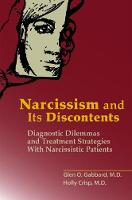Models of Madness: Psychological, Social and Biological Approaches to Psychosis: Second Edition

Book Details
- Publisher : Routledge
- Published : 2013
- Cover : Paperback
- Pages : 448
- Category :
Clinical Psychology - Catalogue No : 34597
- ISBN 13 : 9780415579537
- ISBN 10 : 0415579538
Also by John Read
Experiencing Psychosis: Personal and Professional...
Price £46.99
Also by Jacqui Dillon
There are currently no reviews
Be the first to review
Are hallucinations and delusions really symptoms of an illness called 'schizophrenia'? Are mental health problems really caused by chemical imbalances and genetic predispositions? Are psychiatric drugs as effective and safe as the drug companies claim? Is madness preventable? This second edition of Models of Madness challenges the simplistic, pessimistic and often damaging theories and treatments of the 'medical model' of madness. Psychiatric diagnoses and medications are based on the false premise that human misery and distress are caused by chemical imbalances and genetic predispositions, and ignore the social causes of psychosis and what psychiatrists call 'schizophrenia'. This edition updates the now extensive body of research showing that hallucinations, delusions etc. are best understood as reactions to adverse life events and that psychological and social approaches to helping are more effective and far safer than psychiatric drugs and electroshock treatment. A new final chapter discusses why such a damaging ideology has come to dominate mental health and, most importantly, how to change that.
Models of Madness is divided into three sections: Section One provides a history of madness, including examples of violence against the 'mentally ill', before critiquing the theories and treatments of contemporary biological psychiatry and documenting the corrupting influence of drug companies. Section Two summarises the research showing that hallucinations, delusions etc. are primarily caused by adverse life events (eg. parental loss, bullying, abuse and neglect in childhood, poverty, etc) and can be understood using psychological models ranging from cognitive to psychodynamic. Section Three presents the evidence for a range of effective psychological and social approaches to treatment, from cognitive and family therapy to primary prevention.
This book brings together thirty-seven contributors from ten countries and a wide range of scientific disciplines. It provides an evidence-based, optimistic antidote to the pessimism of biological psychiatry. Models of Madness will be essential reading for all involved in mental health, including service users, family members, service managers, policy makers, nurses, clinical psychologists, psychiatrists, psychotherapists, counsellors, psychoanalysts, social workers, occupational therapists, art therapists.
Customer Reviews
Our customers have not yet reviewed this title. Be the first add your own review for this title.
You may also like
The Space Between: Experience, Context, and Process in the Therapeutic...
Carmel Flaskas
Price £34.99
Culture and Reflexivity in Systemic Psychotherapy: Mutual Perspectives
Inga-Britt Krause
Price £34.99
Narcissism and Its Discontents: Diagnostic Dilemmas and Treatment Strategies...
Glen O. Gabbard
Price £36.00










